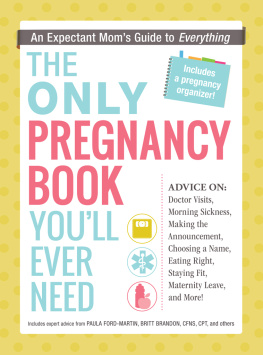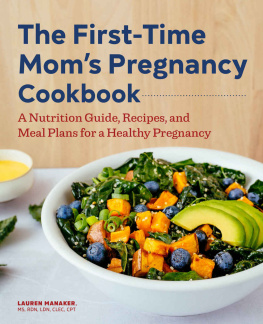VIKING
UK | Canada | Ireland | Australia
New Zealand | India | South Africa
Penguin Books is part of the Penguin Random House group of companies whose addresses can be found at global.penguinrandomhouse.com.
This collection published 2013
Copyright Dr Vinita Salvi, 2013
The moral right of the author has been asserted
ISBN: 978-0-143-41939-6
This digital edition published in 2013.
e-ISBN: 978-9-351-18288-7
This book is sold subject to the condition that it shall not, by way of trade or otherwise, be lent, resold, hired out, or otherwise circulated without the publishers prior consent in any form of binding or cover other than that in which it is published and without a similar condition including this condition being imposed on the subsequent purchaser.
THE BEGINNING
Let the conversation begin...
Follow the Penguin Twitter.com@PenguinIndia
Keep up-to-date with all our stories YouTube.com/PenguinIndia
Like Penguin Books on Facebook.com/PenguinIndia
Find out more about the author and
discover more stories like this at penguinbooksindia.com
PENGUIN BOOKS
THE PREGNANCY HANDBOOK FOR INDIAN MOMS
Dr Vinita Salvi is a consultant in obstetrics and gynaecology who practises in Mumbai. She was professor and head of unit at the Seth G.S. Medical College and King Edward Memorial Hospital, Mumbai. She is an editorial consultant for Lancet, the worlds leading medical journal. Because of her renown as a specialist in high-risk pregnancies, couples from India and abroad seek her help in planning conception and during pregnancy and childbirth.
Introduction
You and I are what we are today because of our parents. And, the same will hold true for your baby. Ensuring that your unborn child reaches his or her full potential requires careful nurturing from both you and your partner. Every couple who comes to me is eager to do the best for their unborn child. And, so begin the questions. Often, their tone is apologetic, as though they are asking a silly question. But, to my mind, any question that is troubling you cannot be silly; they are extremely pertinent.
What are some of the questions that pregnant women and their families frequently ask? Can I eat Chinese food? or Doc, she eats Maggi noodles all the time. Is it okay?
Another prospective parent will ask with an air of innocence, Doc, we want to buy baby clothes in advance. Should they be pink or blue? As if, they were not aware of the ban on disclosing babys gender in this country.
And if you are waiting with bated breath for me to resolve all your doubts, you will just have to wade right through the entire book to arrive at the answers.
ONE
Planning a Pregnancy
Lets start at the very beginning! Before you conceive, you must plan for it. You must prepare your body, your mind and your finances, and visit a doctor. All couples planning to have a baby have some questions and doubts. Here are my answers to the most common of your questions.
How long will it take us to have a baby?
Modern couples are very savvy when it comes to planning a pregnancy. Sometimes a little too savvy! Some think their jobs are likely to be a little less stressful after June and plan the pregnancy for July; others decide to wait till the monsoons end in September, or till after the festival season ends in November. If only Mother Nature were so obliging. Remember: it takes anywhere from a few months to up to a year for a couple to conceive and sometimes even a little longer. If the couple have been using contraception, it takes some time for fertility to be restored. With most common methods of contraception such as condoms, oral contraceptive pills or a copper-T, fertility is restored soon after the method is discontinued. However, if a long-acting depot preparation such as a contraceptive injection has been used then it may take longer.
Do we need to see a doctor?
Most of you already know the importance of pre-conceptional counselling. Pre-conceptional counselling is usually the first visit to the health-care giver for both a good chat as well as a physical examination. The doctor discusses the couples medical history to confirm if both parents, especially the mother-to-be, are in good health. During the initial conversation, the doctor will inquire about the menstrual history of the woman. If the couple have already had a child/children or miscarriages, the doctor will review this history. After the interview, the woman will be given a general and gynaecological health check-up.
Here are some tests youll need to do:
- Blood tests to confirm that the mother-to-bes systems are up and running
- A routine urine test
- An ultrasonography
- Rubella IgG status. If the woman tests negative, she will need vaccination.
- Women with abnormal sugars (diabetes) are at greater risk of giving birth to a baby with a cardiac or a neural-tube defectspina bifidaand defects of the brain. Thus, it is important to check the mother-to-bes sugar status and correct any abnormality before attempting a pregnancy.
Breathlessness and the tendency to get easily fatigued are commonly seen in women with anaemia (less oxygen-carrying haemoglobin in the red blood cells). Palpitations will also alert the physician to check for low haemoglobin or a heart problem. Deficiency of the thyroid-stimulating hormone (TSH) is more common in women than men and can lead to tiredness, excessive weight gain and an inability to tolerate cold.
Keep in mind
The pelvic ultrasonogram can be a double-edged sword. While a normal ultrasonogram is reassuring, an abnormal finding, though often innocuous, can send couples into a tizzy. The commonest example is a fibroid. Fibroids are seen in many women and are not necessarily dangerous. They should be medically or surgically managed only if they are thought to pose a reasonable threat to conception and pregnancy.


















